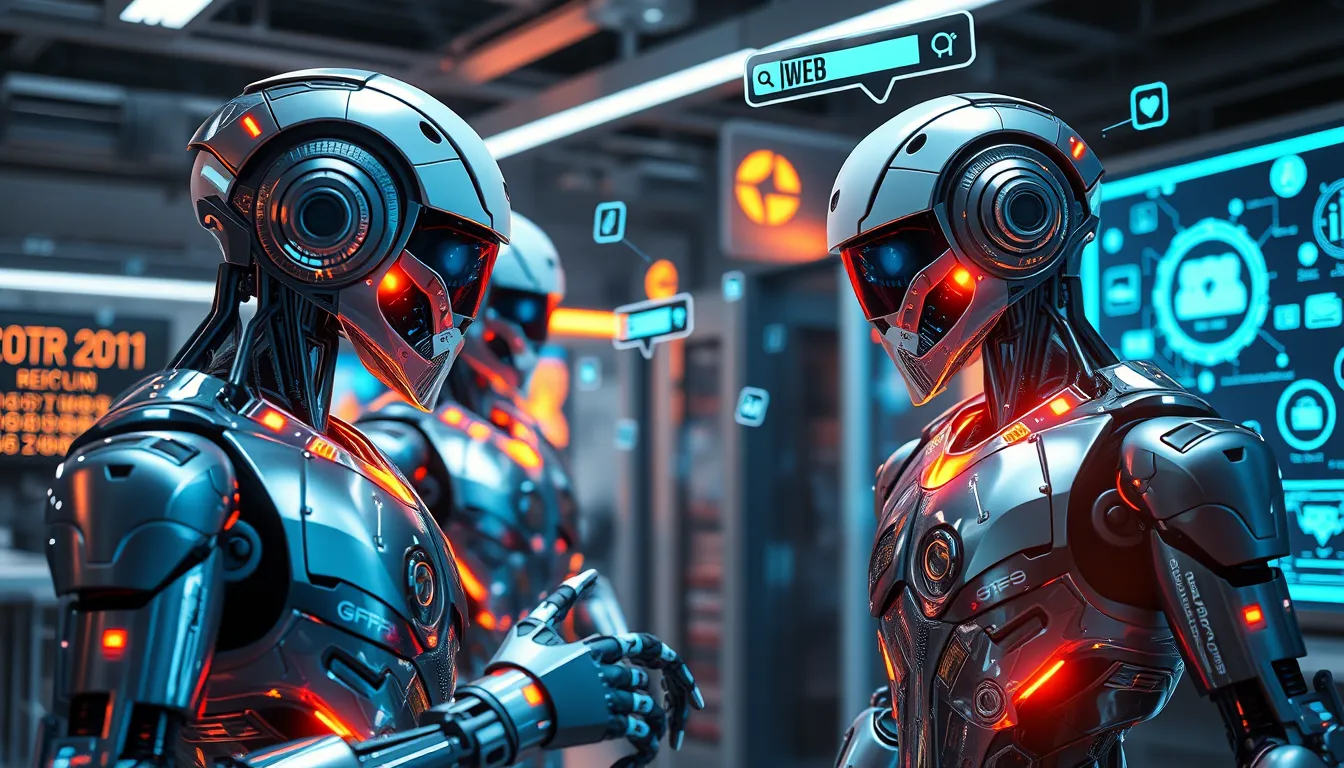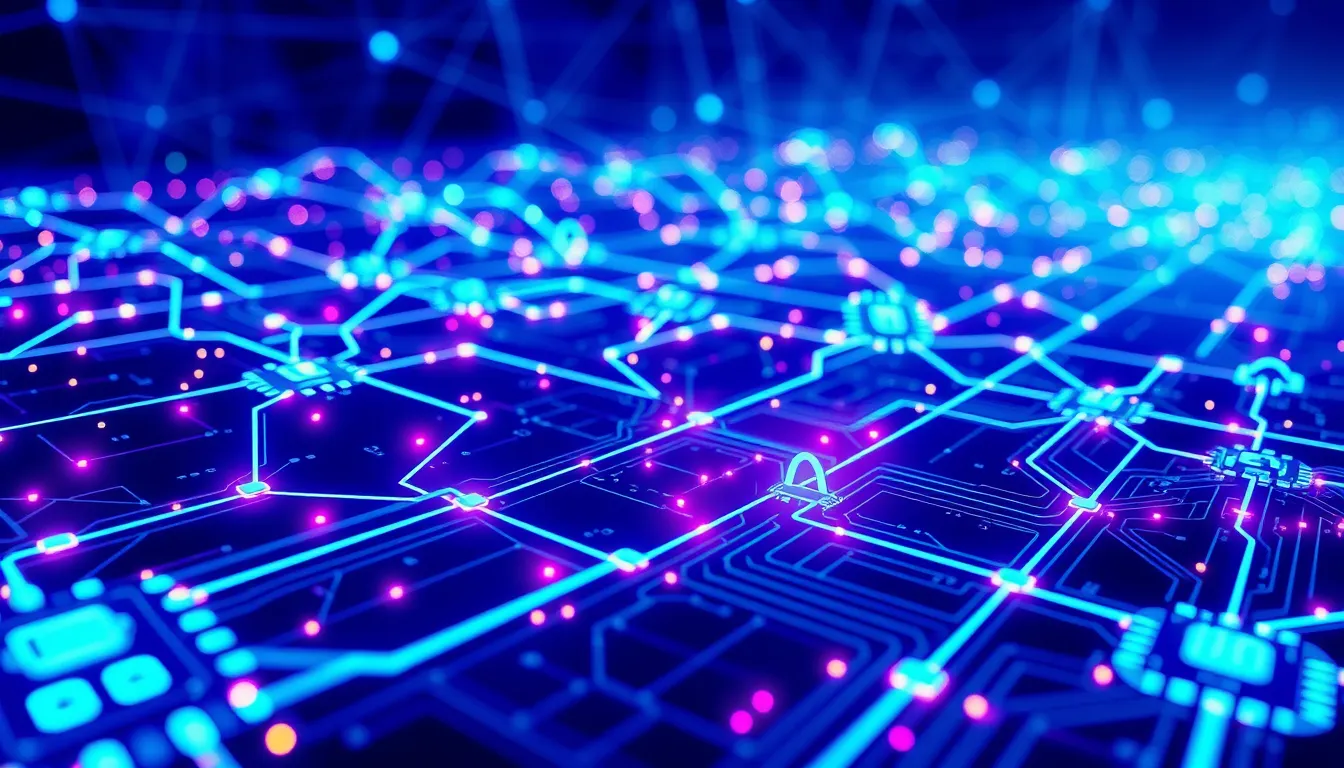Now Reading: Google DeepMind AI: Driving Robotics Innovation
-
01
Google DeepMind AI: Driving Robotics Innovation
Google DeepMind AI: Driving Robotics Innovation

Google DeepMind AI: Driving Robotics Innovation
Google DeepMind AI is at the forefront of revolutionizing robotics and automation. Combining the processing power of advanced AI with dynamic web-search capabilities, this innovative technology is set to transform how robots perform tasks in real time. As industries strive for increased automation and smarter robotics systems, the integration of real-time data from the internet with adaptive robotic mechanisms is reshaping manufacturing, logistics, and even domestic assistance.
The Advent of the DeepMind Gemini Project
At the heart of this technological breakthrough is the DeepMind Gemini project. Supported by extensive research at Google DeepMind AI, the Gemini project aims to integrate large language model robotics with advanced web-search technology. The project has successfully demonstrated that by coupling real-time data ingestion with powerful AI algorithms, robots can quickly adapt to unforeseen challenges. For example:
- Robots can retrieve and integrate the latest instructions by accessing online resources.
- They are equipped to handle dynamic environments where traditional pre-programmed responses fall short.
- The system continuously evolves by updating its internal data from trusted online sources.
For more insights on DeepMind’s innovations, visit the official DeepMind website at DeepMind.
How Web-Search Enhances Robotic Adaptability
One of the most exciting elements introduced by Google DeepMind AI is its ability to improve robotic adaptability through web-search integration. Traditionally, robotic systems rely heavily on static databases and internally stored instructions. However, the new system allows robots to:
- Access real-time data to modify their behavior on the fly.
- Educate themselves about unforeseen tasks by gathering pertinent information directly from the web.
- Continuously optimize their decision-making process with updated, actionable intelligence.
The concept of robots being able to learn from the ever-changing digital ecosystem not only increases efficiency but also significantly reduces downtime when faced with unexpected challenges. This innovation is particularly beneficial in scenarios where rapid adaptation is crucial, such as in emergency response or complex logistics environments.
Real-Time Data Integration and Its Impact on Industry
The integration of real-time data through web-search capabilities promises to overhaul traditional robotics in several key industries. In manufacturing, for instance, robots equipped with Google DeepMind AI can adjust their operations in response to changes in production requirements or supply chain disruptions. Similarly, in logistics and warehousing, these adaptive systems can optimize route planning and improve inventory management by constantly referencing the latest data.
Some of the industries that stand to benefit include:
- Manufacturing: Enhanced automation and reduced errors during production.
- Logistics: Improved efficiency in supply chain and route management.
- Warehousing: Real-time inventory tracking and dynamic task allocation.
- Service Industries: Adaptive customer service robots that evolve based on real-time data.
Advancements in Robotic Task Completion
One of the core strengths of Google DeepMind AI is its ability to support deep learning in robotic task completion. By intelligently combining robust AI models with real-time search functionalities, this technology opens up new avenues for completing complex tasks previously deemed impossible for automated systems. In scenarios where robots face tasks that require nuanced decision-making, the system can pull relevant intelligence from the internet, provide contextual updates, and seamlessly adjust operations.
The evolution of these adaptable models marks a significant leap over conventional robotic systems. The Google DeepMind AI approach eliminates the limitations of static algorithms by fostering a learning environment where robots are both reactive and proactive. This transformation in robotic intelligence paves the way for enhanced performance, reduced operational risks, and significant cost savings in the long term.
The Future of AI Robotics and Automation
The benefits of integrating web-search with robotics are extensive. As this technology matures, we can anticipate further innovations in large language model robotics and adaptive systems that push the boundaries of what machines can accomplish. Google DeepMind AI is leading this charge, with promising advances in how robots interact with digital ecosystems and dynamic operational environments.
Looking ahead, key areas of potential growth include:
- Adaptive Learning: Robots that continuously evolve through feedback and data updates.
- Cross-Industry Applications: Seamless transitions between different application domains such as healthcare, manufacturing, and logistics.
- Improved Autonomy: Enhanced decision-making capabilities through the synthesis of real-time data and predictive analytics.
For additional perspectives on technology innovation, check out Google’s official page at Google.
Conclusion
The integration of real-time web-search capabilities with robotics marks a transformative era in automation. Google DeepMind AI is setting new industry standards by merging high-performance AI with dynamic data-driven approaches. This hybrid model not only enables robots to learn and adapt rapidly but also opens up new possibilities for innovation across multiple sectors.
By embracing this new paradigm, industries can expect improved operational efficiency, enhanced responsiveness to unforeseen challenges, and a substantial reduction in downtime. As the technology evolves further, we may witness a future where the gap between digital intelligence and physical robotics is bridged seamlessly, paving the way for smarter, more adaptive, and inherently more capable robotic systems.
Google DeepMind AI is truly revolutionizing the landscape of robotics and automation, promising a future where machines are as adaptable and informed as ever before.

























